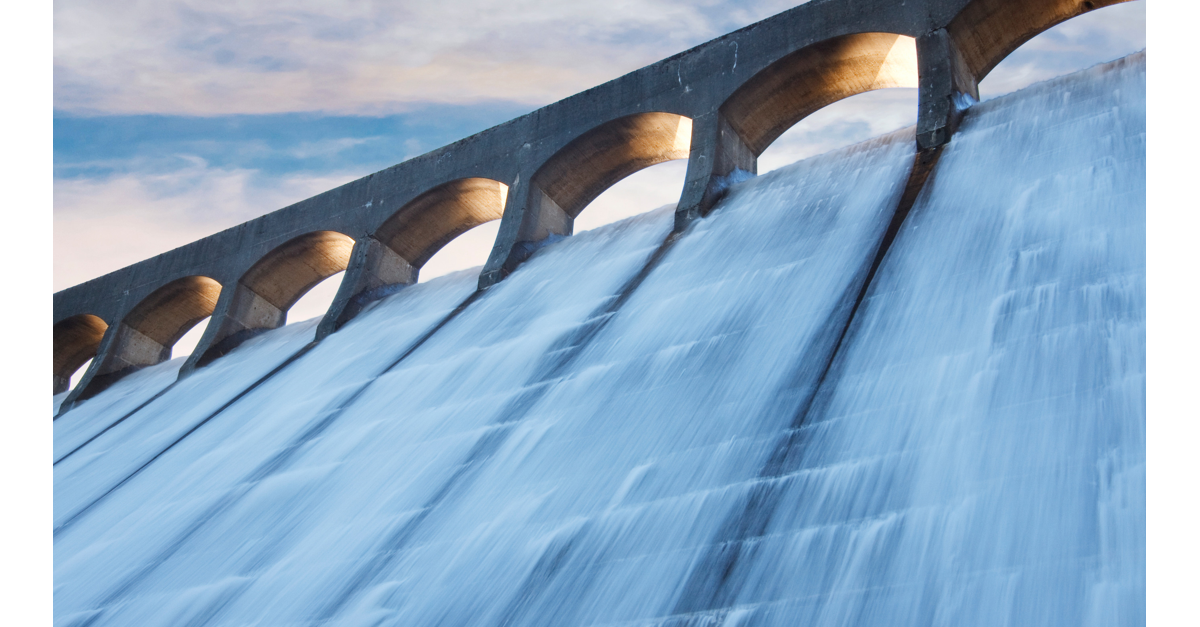Week in water: updates from across the water community

This week in water, Australia confirms its hottest year on record, while national recognition and appointments spotlight leadership and innovation across the sector.
Across the states and territories, water authorities are taking action to secure supply, modernise infrastructure and celebrate new leadership. In Victoria, desalinated water has been ordered to shore up declining reserves, while recycled water is keeping elephants cool at Werribee Zoo.
Internationally, researchers reveal alarming shifts in the global freshwater oxygen cycle – a planetary warning for ecosystems under stress.
Do you want in-depth articles on water trends delivered to your inbox? Sign up for the Australian Water Association’s weekly newsletter, Source.
National
Hottest 12-month period on record for Australia
Australia has recorded its hottest 12-month period ever, ending with its warmest March on record, according to the Bureau of Meteorology.
The 12 months to March 2025 averaged 1.61°C above the long-term mean – exceeding the previous record set in 2019. March alone was 2.41°C above average.
Senior Climatologist Dr Simon Grainger said: “This is certainly part of a sustained global pattern. We've been seeing temperatures since about April 2023 that were globally much warmer than anything we have seen in the global historical record”.
Aurecon appoints new Australian Chief Executive
Aurecon has appointed Todd Battley as its new Chief Executive for Australia, bringing extensive global experience in strategy and infrastructure leadership.
Incoming Group CEO Louise Adams said: “Todd has the capabilities and breadth of global experience to steer Aurecon to take advantage of opportunities, particularly in the water, energy and infrastructure sectors”.
State and territory
Natalie Foeng appointed Managing Director of Yarra Valley Water
Yarra Valley Water has announced the appointment of Natalie Foeng as its next Managing Director, effective 1 July 2025.
Currently the utility’s Chief Financial Officer, Foeng has been a key executive for seven years.
Chair Gabrielle Bell said: “The Board is delighted to announce and welcome Natalie to the role of Managing Director. In an outstanding field of candidates, the Board has appointed Natalie to take the organisation forward”.
Desalination order to boost Melbourne’s supply
Following Victoria’s driest summer in more than a decade, the state government has ordered 50GL from the Victorian Desalination Plant to help replenish storage levels for the next financial year.
At the end of March, Melbourne’s storages sat at 78.1% – down from 90.7% the year before. The order will secure supply for Melbourne, Geelong and parts of Gippsland.
Wannon Water welcomes new Managing Director
Wannon Water has appointed Steven Waterhouse as its next Managing Director, replacing Andrew Jeffers in July. Chair Helen Scarborough said Waterhouse brings strong financial, governance and community experience.
The utility has also launched a new board observer program for Aboriginal or Torres Strait Islander applicants, offering governance training, a scholarship and mentoring. The program begins 1 July.
Hunter Water pricing proposal backed by IPART draft report
Hunter Water’s draft pricing determination for 2025–2030 has been released by IPART, recognising the utility’s community engagement and infrastructure planning.
Managing Director Darren Cleary said: “We’re pleased to see IPART’s draft report acknowledges the importance of maintaining and renewing our essential services to meet the needs of a growing population and changing climate”.
The plan includes $1.6 billion in capital works, including the Belmont Desalination Plant.
Yalata Aboriginal Community wastewater upgrade complete
SA Water has completed a $2.4 million upgrade of the wastewater system in Yalata, replacing an outdated lagoon with a safer, in-ground soakage disposal system.
Senior Manager of Production and Treatment Paul Bendotti said: “The new system uses pumps to pressurise wastewater and evenly distribute it through soakage trenches. This improves sustainability and safety outcomes, especially after community feedback”.
Water education supports youth in north-east Victoria
Goulburn-Murray Water has partnered with Boys to the Bush to host excursions for vulnerable youth at regional dam sites.
Program Coordinator Peter Rourke said the visits give young people a chance to learn about local water infrastructure: “It’s an amazing opportunity… They learn a lot and have a great time while they are there.”
Genetic study supports future of threatened mint-bush
Gippsland Water is supporting a two-year genetic study of the Wellington Mint-bush, a threatened plant native to Gunaikurnai Country.
Managing Director Sarah Cumming said DNA and seed analysis will help “identify new methods to protect the plant for future generations.”
Elephants thrive on recycled water at Werribee Zoo
Greater Western Water has connected Werribee Open Range Zoo to a new pipeline supplying recycled water for its 21-hectare elephant habitat.
The project, supported by a $2 million grant, will provide up to 150 million litres per year, reducing reliance on drinking water or river sources.
The system can scale up to 400ML as the zoo expands, offering a sustainable water solution for its nine Asian elephants.
Bellingen Shire’s villages to receive modern wastewater services
Construction is underway on Phase 2 of Bellingen Shire Council’s $38 million Sewering Coastal Villages Project.
The project, supported by the NSW Government’s Safe and Secure Water Program, will connect 226 properties in Mylestom and Raleigh to upgraded infrastructure via the Urunga Sewage Treatment Plant.
The works will reduce the use of septic tanks and help protect the Kalang and Bellinger Rivers from contamination.
International
Freshwater oxygen cycle shows worrying global decline
A new Utrecht University-led study has found that inland waters around the world are consuming more oxygen than they produce – making them a growing sink of atmospheric oxygen.
Published in Science Advances, the research shows that global "oxygen turnover" in lakes, rivers and reservoirs has accelerated due to human activities.
Lead researcher Jack Middelburg said: “These waters are being suffocated. With this model, we offer the most complete possible understanding of this cycle on a large scale – so we can identify the causes and intervene in time”.
Want in-depth articles on water trends delivered to your inbox? Sign up for Source, the Australian Water Association’s weekly newsletter.


